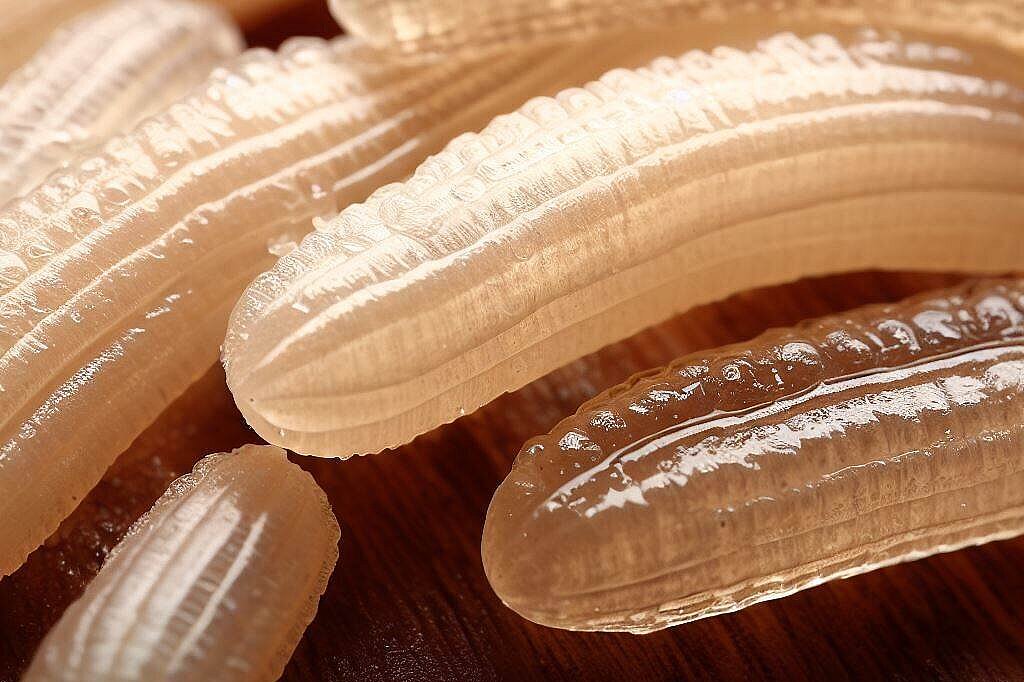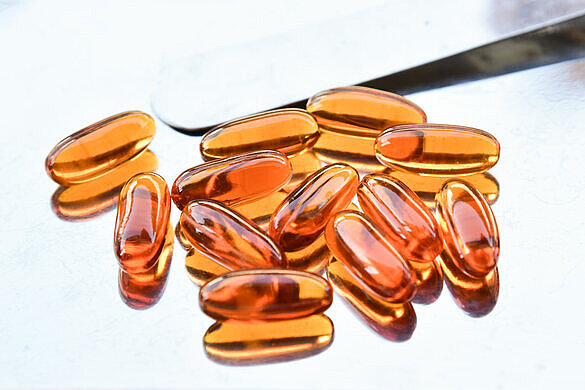Monoceride

You may have heard of monocerides, an ingredient found in some dog foods and treats. But what are monocerides and how do they affect your dog's health? In this article you will learn more about these special fats and their advantages and disadvantages.
What are monocerides?
Monocerides are a type of fatty acid consisting of a glycerol molecule and a fatty acid. They belong to the monoacylglycerols (MAGs), which are also known as emulsifiers. Emulsifiers are substances that help to mix fat and water by reducing the surface tension. Monocerides are often used as additives in foods to improve texture, taste and shelf life.
How do monocerides affect dogs?
Monocerides have different effects on dogs depending on the type of fatty acid they contain. Some monocerides can have positive effects, such as:
- Improving digestion and nutrient absorption by stimulating the formation of bile acids and promoting fat breakdown.
- Strengthening the immune system by having antibacterial and antiviral properties.
- Reducing inflammation by inhibiting the release of anti-inflammatory messengers.
However, other monocerides can also have negative effects, such as
- Increasing cholesterol levels by stimulating cholesterol synthesis in the liver.
- Promoting overweight and obesity by increasing appetite and slowing down fat burning.
- Triggering allergies or intolerances by damaging the intestinal barrier and causing the release of histamine.
How to recognize monocerides in dog food?
Monocerides are approved as food additives in the EU and must be declared on the label. They can appear under various names, such as
- E 471: mono- and diglycerides of fatty acids
- E 472a : Acetic acid esters of mono- and diglycerides of fatty acids
- E 472b : Lactic acid esters of mono- and diglycerides of fatty acids
- E 472c: Citric acid esters of mono- and diglycerides of fatty acids
- E 472d: Tartaric acid esters of mono- and diglycerides of fatty acids
- E 472e: Mono- and diacetyl tartaric acid esters of mono- and diglycerides of fatty acids
- E 472f: Acetic acid esters of monoacetyltartaric acid esters of mono- and diglycerides of fatty acids
How can you avoid monocerides in dog food?
If you want to avoid monocerides in dog food, you should pay attention to the following points:
- Read the label carefully and pay attention to the names mentioned above.
- Choose a dog food made from natural ingredients without artificial additives.
- Prepare the food for your dog yourself or buy it from a trustworthy supplier.
Monocerides are a type of fatty acid consisting of a glycerol molecule and a fatty acid and are used as emulsifiers in food. They can have various effects on dogs, including improving digestion and the immune system, but also negative effects such as increasing cholesterol levels or promoting obesity. Monocerides are listed on food labels under various names, and to avoid them, look for natural and unprocessed dog food options.
If you notice any signs of hypersensitivity or poisoning in your dog, you should see your vet immediately. We are not a substitute for a vet, but we try to be as accurate as possible. Every dog reacts differently and we recommend you get a second opinion or consult your vet if in doubt.
Stay healthy and take good care of your four-legged friend!😊
Similar to Monoceride
Diglycerides are fats that consist of two fatty acids and a glycerol molecule. They occur both naturally in food and artificially as additives. In dog food, they are usually used as emulsifiers,...
Lecithin is a collective term for various phospholipids that play an important role in the cell membrane. Phospholipids are fat molecules that consist of a water-soluble head and a fat-soluble tail....
Stearic acid is a saturated fatty acid with the chemical formula C18H36O2. It is a long-chain fatty acid consisting of 16 or more carbon atoms. Stearic acid is found in many natural sources, such as...
Palmitic acid is an organic acid with the chemical formula C16H32O2. It is a saturated fatty acid, i.e. it has no double bonds between the carbon atoms. Palmitic acid is a colorless solid at room...



